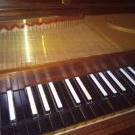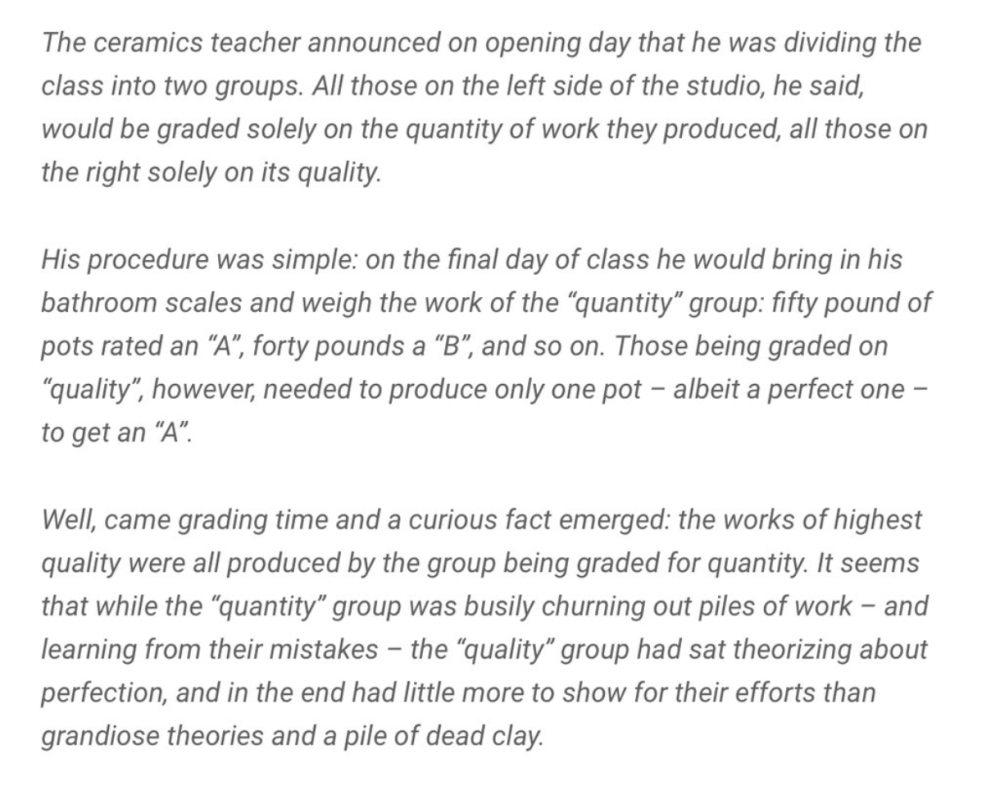All Activity
- Past hour
- Today
-

2025 Halloween Satisfaction Survey
Kvothe replied to PeterthePapercomPoser's topic in Monthly Competitions
You can still write and submit for feedback. 🙂 -
Tunndy started following fur elise orchestrated
-
umfr.pdf fur-elise-beethoven.mp3
-
Yeah William Byrd's music is so colorful! The false relation in English Renaissance is very espressive. And I always like how Dufay is influenced by Dunstable with all the uses of 3rds and Faxbourdon texture. Basically the English are the one who pushes the history forward from the era of octaves and fifths to thirds by moving that overtone series one step further. Henry
-
thanks @Henry Ng Tsz Kiu - yeah, English renaissance was very colorful and actually had a pretty big range of expression from the silly character pieces to some of the serious monoliths. Sometimes I get upset that I discovered it so late.
-

piano Is my Piano Prelude any good? (Recorded Performance)
Mooravioli replied to Mooravioli's topic in Piano Music, Solo Keyboard
-

piano Is my Piano Prelude any good? (Recorded Performance)
Mooravioli replied to Mooravioli's topic in Piano Music, Solo Keyboard
Brotha Henry, Thank you truly for your kind comment. You have definitely helped me during it's compositional process, but in regards to the length of the piece, I have actually shortened it as opposed to adding on. Especially in the trio, I feel the material has become more concise and easy to digest. I've never even noticed the counterpoint in the G sharp minor section, does that mean I am now prepared to write a 6-part fugue in a krabby canon style? For the recapitulation, I needed something that will segue nicely into the original tempo, and that means slowly increasing speed using the offbeat figure. Thanks for commenting, as always. -
I've always prioritized voice leading in my chord construction; sometimes, I just slap a root on there and it works out! Thank you both for listening!
-

I wrote some variations on Dies Irae for string quartet
Monarcheon replied to 林家興's topic in Chamber Music
As a cellist, I personally like seeing the downwards arpeggio line, but I suspect Scriabin wrote it the way he did because he wanted to specify that the root(?) occurred on the beat. I see both having merit in different cases, but—generally—the arp. line is probably fine. -
PeterthePapercomPoser started following It was a dream (attemp at cinematic composition)
-
reminds me of old update 2.0 geometry dash levels. it sounds like something F-999 would make.
- 1 reply
-
- 1
-

-
Fruit hunter started following 2025 Halloween Satisfaction Survey
-
2025 Halloween Satisfaction Survey
Fruit hunter replied to PeterthePapercomPoser's topic in Monthly Competitions
So I was going to submit a piece it just did not fit the format anyways I enjoy having competitions. I think they are very fun and is a great way to inspire and showcase other people’s music. However, I am very inspired by how marching band competitions do things I’ll give you some ideas I do like having the idea of a specific theme but most marching band competitions Don’t really have themes so different entries do pee a lot, even some contrasting ideas from one band to another another good idea I have is some sort of classification system, usually in marching bands this is to keep a competition fair and not to give anybody an advantage. This is usually done with two variables, being size and skill level. (usually differentiating between A class and open class and having a number explaining the size I being the smallest V usually being the largest.) so a III A band is a medium size developing band compared to a V open which is basically it’s whole entire military unit on its own my idea for a classification system is just a differentiate from composition from the ensemble either being for a solo musician A small chamber work, a string, Orchestra concert band and large Orchestra Concert band and large orchestra may be scored in the same classification I do like the scoring rubric or like a specific format. I don’t really care about having a monetary award, but it would be fun knowing the precise points you earned from your piece so you could see where you can improve upon and also it’s just more fun for numbers (I like numbers for some reason.). So those are my ideas and feedback. -
therealAJGS started following God of speed (fast synth track)
-
Hi @Vasilis Michael! It's as good as your usual style with fleeting harmonic progression like the one go to Ab major at the start of B section of the Minuet in b.8. The Trio is really dreamy and definitely with Schubertian influence there, especially that turn to minor in b.56. Thx for sharing! Henry
-
Hi @gaspard! Nice performance. I always get fascinated by early instrument performance with lots of ornaments. The Virginal is a beauty both for its acoustic and its look. English music was much more colorful than the Ars Perfecta back then. Thx for sharing! Henry
-
Hey VInce, I like the simplistic style here and the smooth voice leading. I will make sure to try this on piano and record it. Henry
-
Henry Ng Tsz Kiu started following Benediction For Pope John Paul II
- Yesterday
-
PeterthePapercomPoser started following Benediction For Pope John Paul II
-
I'll get the words in, probably just in the soprano part for now: they are better than my music!
-
Churchcantor started following Benediction For Pope John Paul II
-
Benediction For Pope John Paul II Free Sheet Music by Robert C. Fox for Various Instruments | Noteflight
-

2025 Halloween Satisfaction Survey
Kvothe replied to PeterthePapercomPoser's topic in Monthly Competitions
@PeterthePapercomPoser I acted as if I was real judge in official competition. Entries have to meet the core requirements before passing onto the next round. So that is what I did first. I check to see if they meet the core requirements of the competition. If they failed, at least, I could look over the score help them. But it would go further than. If entries pass the first round, then, I come back and do score check and playability. Once that is done, I look at different textures, harmonies, and such. I notice the entries used a modern harmony: clusters, chords built on seconds, atonality, ect. I loved it. In the 20th century, traditional forms, we all used to, is throw out the window. So we have to be more creative with time, form, and structure. I have a feeling with next one: entries will be tonal. Hahaha -

2025 Halloween Satisfaction Survey
Kvothe replied to PeterthePapercomPoser's topic in Monthly Competitions
In competitions (formal or informal) judges will have template to use score entries. That is just a matter of fact. -
therealAJGS started following a weird composition
-
Thanks for checking this out! Depends on the idea, I don't have a formula. This time it was just about adding voices to an unchanging melody while keeping it very simple. Other times I build everything off of a harmonic progression. Sometimes a rhythmic cell is really interesting and it starts from there. But most importantly, I wish I had a better answer lol
-

How do I compose faster?
luderart replied to latebeethoven_addict's topic in Composers' Headquarters
1. Use a faster writing pen! 2. Use a faster computer/laptop. 3. Think faster. For some more serious advice: 1. Dedicate the time for composition. 2. Don't force yourself to compose. Let the inspiration come and you will compose. At least that's the way I approach it. I have heard others advise that you have to start composing and the inspiration will follow. But for me, it isn't like that. 3. For inspiration: a) Listen to other composers' music. b) Check for calls for scores and competitions. These will give you ideas for composition. -
Henry Ng Tsz Kiu started following Western War and Piano sonata no 2 in C major / 3. Menuetto con Trio
-
.thumb.png.8b5b433a341551e913a34392660bc95b.png)
How do I compose faster?
PeterthePapercomPoser replied to latebeethoven_addict's topic in Composers' Headquarters
I think this question comes from the wrong place philosophically. When one asks the question "How do I compose faster?" one is really treating themselves like a machine, the assumption being that the more trial and error, the more one learns. Take this anecdote: While this anecdote addresses the concept of craft, it doesn't really get at inspiration. I believe that the question any artist or composer should really be asking themselves is "How do I enjoy music more?" or "How do I enjoy writing/creating more?". Without addressing this question one is quickly going to crash into a wall called "burnout". The pattern behind one's creative output is likely to become something akin to this: 1) Overexertion 2) Exhaustion 3) Creative stagnation 4) Increased self-doubt 5) Repetition. Asking the question "How can I enjoy music more?" will lead the composer towards music that they want to emulate, setting up a pattern of: 1) Discovery 2) Epiphany 3) New utility 4) Integration (or Refinement) 5) Sharing 6) Repetition (I won't lie, I partially used Google Gemini to help me come up with more healthy creative habit steps) -
A speed composition i made. Any feedback is welcome. Thanks.(made in a few hours)
- Last week





.thumb.png.1e2763f479362bbb522da50d31ef2e50.png)

